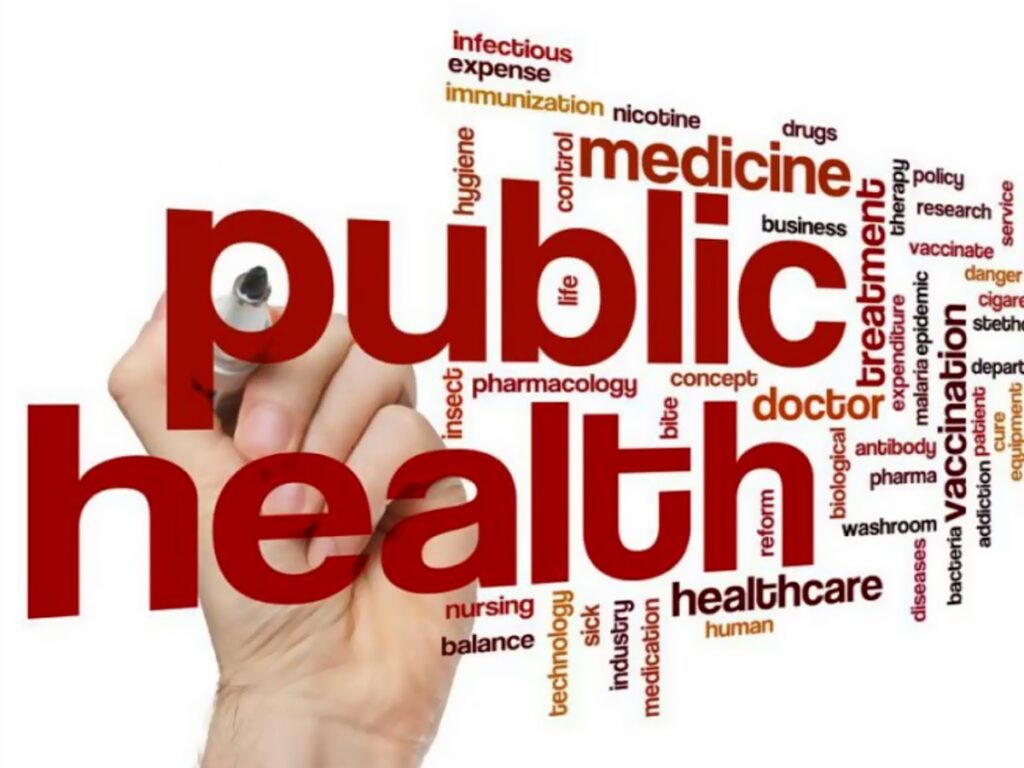
What is public health?
Public health involves the promotion of health practices and services, preventing disease, and providing people with the ability to manage their acute/chronic illness and disabilities. It involves scientific discovery, policymaking, and on-the-ground implementation that have a positive impact on people’s lives. Unlike the medical sciences, which deal directly with treating medical conditions, public health is a broader domain that combines several disciplines such as medical practice, sociology, law, education, marketing, psychology, etc. to come up with innovative solutions for complex and population-wide challenges. In some narrow sense, you could say medical science is concerned with treatment, with some focus on prevention on a smaller scale, while public health is concerned with prevention at the larger scale.
Why is public health important?
There are several realities that the world faces that make public health an extremely relevant and important area across the world. These are:
Aging population: People are living longer now thanks to innovations in medical science and public health. New treatments, better access, and awareness about better nutrition and preventive healthcare are ensuring people live longer. This means there are more people requiring more specialized care later in life.
Poor lifestyles: People are living longer, but not necessarily healthier. There is a wider prevalence of lifestyle diseases like diabetes, hypertension, cardiac trouble, obesity, etc. Again, this means there are more people requiring more care, besides the need for policy interventions to control these lifestyle issues.
Environmental challenges: Pollution, deforestation, effects of climate change, and reduced biodiversity are also inflicting havoc on lives and livelihoods. The list of affected populations is large and growing.
Public health is an integral part of UN’s 17 Sustainable Development Goals (SDGs), specifically Goal 3 on ‘Good Health and Well-being’, and has significant overlaps with at least 5-6 other SDGs, making it a key area worldwide.
Careers in public health
Public health professionals are in great demand globally for the above reasons. This demand has accelerated further after the COVID-19 pandemic, which laid bare the inadequacies of existing healthcare systems and the gaps in the policy. These professionals are tasked with improving the overall health and wellness of the human population, which is as important as it sounds like Educators, Epidemiologists, Public Health Consultants, Public Health Administrators, Project Managers, Disaster Management Specialists, and Public Health Researchers in pharmaceutical companies, transnational institutions, government, think tanks, consultancy firms, and NGOs.
A career in public health, whether in the private or public sector, brings with it significant meaning and fulfilment for obvious reasons. Given the rising demand for public health professionals, compensation levels and job security are also rising for well-qualified candidates. Another advantage public health specialists enjoy is that their work is in a global environment.
Master’s in Public Health (MPH)
The Jindal School of Public Health & Human Development (JSPH) launched in the year 2021 as a response to the global pandemics offers a two-year postgraduate degree, designed to professionally train students in specific areas of individual and community healthcare. The school aspires to be a world-class public health institution, in turn becoming a hub for innovation to meet the constantly evolving and dynamic needs of public health in India, and across the world. The Master’s in Public Health (MPH) provides students with foundational training, skills, and competencies to embark on a career in public health.
Grounded in a Global Health approach and building on a vast network of national and international collaborations, the MPH is a culmination of JGU’s dedication to promoting public service. Typical inclusions in its research-intensive curriculum are areas like nutrition, epidemiology, biostatistics, quantitative methods, law, economics, population health, determinants of health, and public health policy with numerous opportunities for specialization and thesis writing. Such a program is particularly relevant for students with undergraduate degrees in Medicine, Health Sciences, Life Sciences, Statistics, Biostatistics, Demography, Population Studies, Nutrition, Sociology, Psychology, Anthropology, Social Work, etc.
Know more about the programme here.


